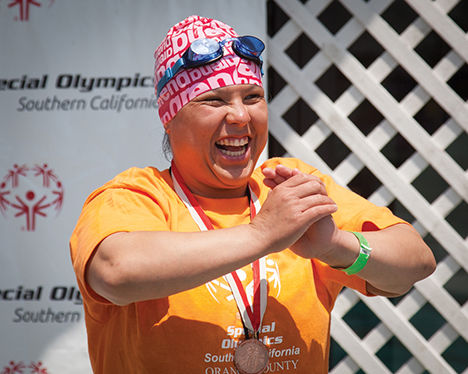There was a time, not long ago, when the nine months in utero were largely mysterious. When parents and families waited for the birthday to see whether the baby was a boy or a girl, had ten fingers and toes or showed signs of any special needs.
Today, prenatal screening and ultrasounds are offered to every pregnant woman with a strong case made for advanced screening, genetic counseling and amniocentesis in pregnant women over 35. Even when completely accurate, screening only tells one side of the story.
Sara Watts, mother of a child born with spina bifida, wrote an eye-opening piece about her experience during her pregnancy with Henry. The condition would result in her son being completely paralyzed from the waist down.
She and her husband Lou were chatting with a receptionist at the office of the maternal-fetal specialist.
“We started talking about her kids — three girls! — and I asked her if she preferred girls, or if she might try for a boy. We both quickly agreed that the baby’s sex wasn’t really that important — boy or girl, they were blessings.
“‘Oh, I like girls, but it doesn’t matter to me!’ she exclaimed. ‘You know, as long as they’re healthy and running around!’ I felt it and Lou felt it, simultaneously — that hot knife of grief in the belly. I think he actually winced.”
How often do we use language such as this because we don’t think twice about the effect it may have on a listener?
Of course we all want healthy children. No one wishes malady or suffering on a child, especially one not even born. Yet, when we place health above all other virtues, when we look at only one side of the story, we may be inadvertently telling someone that his or her child’s life is not worth living.
I have even heard several well-meaning priests share stories in homilies that have made me cringe. They go something like this — a young couple comes to the priest, devastated that they have received a prenatal diagnosis of Down syndrome or anencephaly.
The good priest hates to see them in pain and encourages them to pray, say a novena or even take a pilgrimage seeking health for their child. The homily always ends with the birth of a beautiful, healthy baby and relieved parents. Thanks be to God.
Truly. Because no one wishes ill on a child.
However, what does this say to the parents who pray for health for their child but welcome a son or daughter with Down syndrome or anencephaly or spina bifida? Were their prayers not efficacious? Was their child unworthy? Is their son or daughter not blessed?
Words are incredibly important. And, unfortunately, the collective effect of these kinds of stories and well wishes for health, no matter how well-intended, is that our culture continues to see health as the basis for worth.
At our inaugural OneLife LA last January, stand-out speaker Rick Smith told the story of his son Noah’s birth. Noah was born with Down syndrome.
The doctor who delivered him, a family friend, greeted Rick and his wife Abby with the words, “I’m so sorry.”
Thanks be to God that Rick and Abby weren’t sorry. They welcomed Noah, knowing that God had created him for a specific purpose and that he was perfect in God’s eyes.
Rick shared with us that “Every time you see one Noah, there are nine Noahs that you do not see because they’ve been aborted.” The abortion rate for unborn children prenatally diagnosed with Down syndrome hovers around 90 percent.
To show the other side of the story, Rick has dedicated his life to sharing daily video clips of Noah. He hopes helping people see how great life is with Noah will change the conversation and make the diagnosis only one part of the story of a person’s life, not the entire story.
There are other great resources, such as the tear-jerking video “Dear Future Mom,” by children with Down syndrome telling a mom who has just learned of a prenatal diagnosis not to be fearful, that her child’s life will actually be pretty great.
And, there’s more. For those parents who learn that their children may not live long after birth, there are Perinatal Hospice resources illuminating the joy and beauty in every second, and the immense value and purpose of every human life, even if we cannot always understand it.
This summer in L.A., we have a once-in-a-lifetime opportunity to support the lives and accomplishments of people with intellectual disabilities — the people our “throwaway culture” consider unworthy.
The Special Olympics World Games welcomes athletes from around the world to L.A. to compete in sports and share their joy for life with all of us. There is still time to join in the opening ceremonies on July 25 at the L.A. Memorial Coliseum or be a Fan in the Stands to show your support not only for these amazing athletes, but also for their families who love and support them.
We know that God has created every person out of love and for a unique purpose, even if the world does not recognize this. Next time you hear of someone facing a fearful prenatal diagnosis, instead of encouraging them to pray for health, try encouraging them to pray that they can accept the amazing human being God is sending them, even if their child does not fit our culture’s definition of “healthy.”

